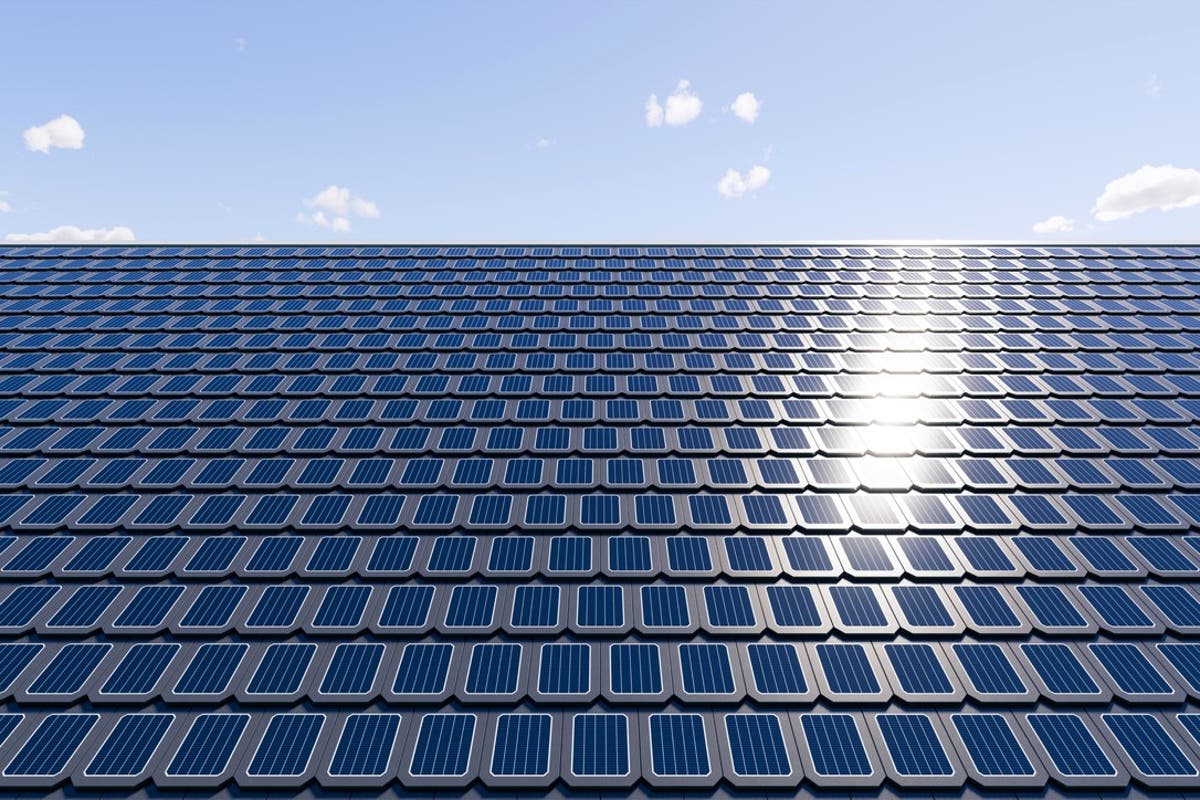Solar panel advances will see millions abandon electrical grid, scientists predict::Solar energy costs have fallen 90 per cent over the last decade, while new discoveries have seen efficiency rates rise
Solar panel advances will see millions go off grid, scientists predict
From a definite will.
More than 30 million homes in Europe could meet all their energy needs using rooftop solar panels alone, according to a new study.
To a well, they could.
Researchers from the Karlsruhe Institute of Technology in Germany found that more than 50 per cent of Europe’s 41 million freestanding homes could have been self-sufficient in 2020 using just solar and batteries, with this figure expected to rise to 75 per cent by 2050.
To a we could have already.
“Our results show that even in 2050 going off-grid won’t be the most economic choice, but it could make sense to invest in these kinds of self-sufficient buildings if you are willing to pay more for self-sufficiency,” said lead researcher Max Kleinebrahm, an energy economics researcher at the Karlsruhe Institute of Technology.
To a, well, they will likely, and probably should, remain connected anyway.
Fuck these people in charge of article headlines twisting what researchers are actually saying into some clickbait title that does not say what the researches said at all.
clickbait title that does not say what the researches said at all.
This one is particularly bad, since it says the exact opposite. This article should be downvoted to oblivion.
I have solar panels, and it was great in the summer, not so much now that we’re in November.
Ah you must be a northern hemispherer
Guilty!
Clickbait headline.
Our results show that even in 2050 going off-grid won’t be the most economic choice,
So the conclusion of the research is what we would expect, and is the direct opposite to the insane headline.
The article should be downvoted for being decidedly misleading, unless you read all of it.In my country, the frequent black-outs put a lot of industries and businesses towards solar. The alternatives such as generators are more expensive and the solar are now cheaper in long term.
In 1990s and 2000s, we used generators, batteries and inverters or candles depending on how much you could afford.
Duh? I mean, it’s stupid to think people would pay and stay on the grid if they get all they need from their solar panels and backup batteries.
Grid is still useful even then, it’s unlikely anyone will want to size batteries for a week of bad weather in the winter.
It’s great that people who need to go offgrid can do that well these days, but it’s unlikely to take off for the rest of us.
There’s also no real benefit, it’s good to sell your excess and buy when your lacking.
Being attached to the grid still means you’re charged every month, and as more and more get solar, electric companies will pay less and less back for what you supply.
The only thing hindering stuff right now is that batteries are shit. They’re too expensive and heavy, and they don’t last long enough before being replaced. If a long lasting solid state battery or the likes thereof comes to fruition, people will go off grid.
You’re (sometimes) charged a standing charge. Which you’ll negate with sold electricity.
It really makes no sense to forgo a grid connection if you have one available. It solves a lot of problems, doesn’t require you to oversize massively on battery storage, helps you when you need it and helps your neighbour when they do
There’s no benefit to offgrid if there’s a grid connection available
I see you did not read the article which concludes the opposite to what the title says.
Our results show that even in 2050 going off-grid won’t be the most economic choice,
I’ll believe it when I see ComEd’s stock prices take a nosedive.
This is the best summary I could come up with:
Advances with solar technology mean that it will also make it economically viable for a portion of these freestanding single-family homes to abandon the electrical grid altogether in the coming decades.
Rather than abandoning the grid altogether, however, the researchers said it would make more sense at a macroeconomic scale for households to remain connected and feed excess energy back to other users during times of overproduction.
The research was detailed in a study, titled ‘Two million European single-family homes could abandon the grid by 2050’, published in the scientific journal Joule.
Lead researcher Felix Creutzig said the falling costs could mean that the world’s entire energy consumption in 2050 could be “completely and cost-effectively covered by solar technology and other renewables”.
“The recent progress of renewables means that fossil fuel-dominated projections are no longer realistic,” said Femke Nijsse from the University of Exeter.
“Using three models that track positive feedbacks, we project that solar PV will dominate the global energy mix by the middle of this century.”
The original article contains 394 words, the summary contains 168 words. Saved 57%. I’m a bot and I’m open source!




